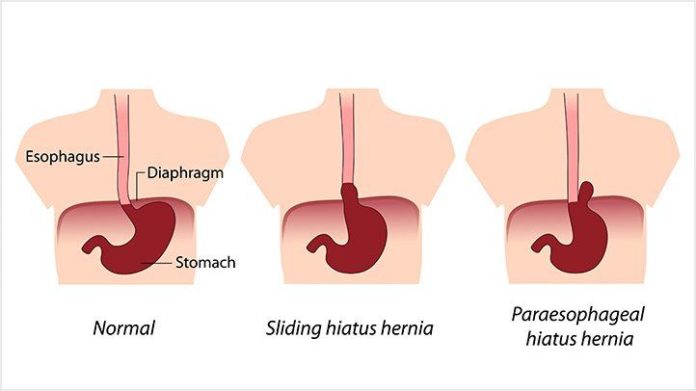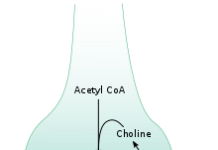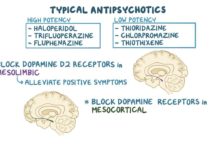A hiatal hernia, or hiatus hernia, happens when the upper part of your stomach pushes up into your chest through an opening in your diaphragm, the muscle that separates your abdomen from your chest.
Sometimes a hiatal hernia doesn’t cause any problems at all and doesn’t require any treatment.
But in other cases, the narrow opening in your diaphragm can squeeze the part of the stomach that it surrounds, causing retention of stomach acid and other contents. These contents can back up into your esophagus, causing heartburn and other symptoms.
Types of Hiatal Hernias
There are two main types of hiatal hernias:
Sliding Hiatal Hernia This is when part of your stomach intermittently slides up into your chest through the opening in your diaphragm for your esophagus.
The vast majority of hiatal hernias are sliding, also known as type 1.
Paraesophageal Hiatal Hernia This is when part of your stomach pushes through the opening in your diaphragm next to your esophagus, so that both your esophagus and part of your stomach are squeezed together.
Causes and Risk Factors of a Hiatal Hernia
Hiatal hernias can happen because of weakening in the muscle tissue of your diaphragm, which allows your stomach to push up through the opening for your esophagus.
The specific causes of a weakened diaphragm aren’t always clear, but the following factors may play a role:
- Age-related changes to your diaphragm
- Injury from trauma or surgery
- Being born with a large hiatus (opening in the diaphragm)
A weakened diaphragm usually isn’t enough to cause a hiatal hernia — you also need increased pressure in your abdomen to push the stomach up through the diaphragm.
Increased abdominal pressure can come from the following factors:
- Coughing
- Vomiting
- Straining during bowel movements
- Pregnancy
- Strenuous exercise
- Lifting heavy objects
Hiatal hernias can occur at any age and affect both sexes. The following factors, though, make it more likely that you’ll experience one:
- Being 50 or older
- Being overweight or obese
- Smoking
Duration of a Hiatal Hernia
The duration of symptoms of a hiatal hernia vary greatly depending on the individual. In some cases, a hiatal hernia will slowly get worse over time and eventually need treatment. In severe cases, symptoms will not go away until a doctor performs surgery.
Complications of Hiatal Hernia
In the majority of cases, a hiatal hernia will not lead to other health problems. However, in some instances, it can lead to GERD.
Although a hiatal hernia can cause GERD, not all people with a hiatal hernia develop GERD — and most people with GERD don’t have a hiatal hernia.
Other complications of a hiatal hernia include lung problems or pneumonia, which can occur when stomach contents move up to the lungs.
Related Conditions to a Hiatal Hernia
If a hiatal hernia causes chest pain, it can often be confused with chest pain caused by cardiovascular conditions, including a heart attack.
In addition to chest pain, other signs of a heart attack include:
- Pain or discomfort in one or both arms, back, neck, or jaw
- Dizziness
- Nausea
- Vomiting
- Shortness of breath
- Heart palpitations
- Irregular heartbeat
Resources We Love
Favorite Organizations for Essential Information on Hiatal Hernia
International Foundation for Gastrointestinal Disorders (IFFGD)
IFFGD is a nonprofit organization dedicated to education and research for all gastrointestinal (GI) disorders. Get essential facts on GI issues like living with a hiatal hernia and heartburn, and read personal stories from people who are dealing with the same health problems.
Cleveland Clinic
The Cleveland Clinic provides a thorough overview of what it’s like living with a hiatal hernia, as well as information on diagnostic tests and treatment.
Favorite Resource for Healthy Eating With a Hiatal Hernia
Academy of Nutrition and Dietetics
If you’re suffering from heartburn associated with your hiatal hernia, the Academy of Nutrition and Dietetics offers great tips for how diet changes can help prevent reflux.
Additional reporting by Ashley Welch.
Editorial Sources and Fact-Checking
- Hiatal Hernia. Cleveland Clinic. January 9, 2020.
- Hiatal Hernia. Mayo Clinic. April 15, 2020.
- Hiatal Hernia. Harvard Health. February 2020.
- Hiatal Hernia. Cedars-Sinai.
- Conditions We Treat: Hiatal Hernia. Johns Hopkins Medicine.
- Warning Signs of a Heart Attack. American Heart Association. June 30, 2016.













































